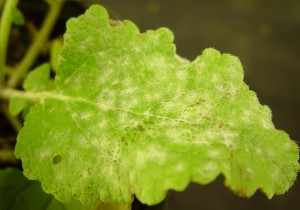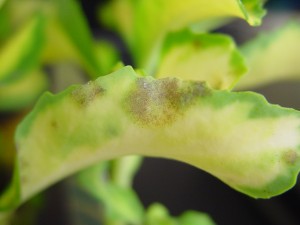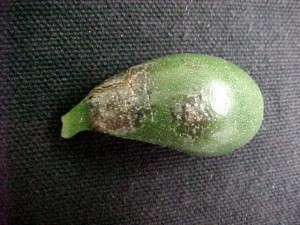Powdery Mildew
Pathogen: multiple including Erysiphe spp., and Microsphaera spp.
Hosts: Achillea, Aquilegia, Aster, Coreopsis, Clematis, Delphinium, Helianthus, Lupinus, Monarda, Phlox, Pulmonaria, Rudbeckia, Salvia, Scabiosa, Solidago, Sedum, Veronica, and Viola.
Symptoms: White, talcum-like colonies on the leaf surface. Chlorotic spots may be present on the leaf surface opposite the colony. Under favorable conditions colonies enlarge and coalesce, blighting larger sections of foliage. Severe infections on some hosts cause defoliation. Infection on Sedum causes slightly raised scabby lesions, powdery colonies may not be readily visible.
Spread: Powdery mildew spores are air-disseminated and subsequently infect leaves and stems of plants under humid conditions.
Management: Plantings should be scouted for signs of disease; timely fungicide applications made early in the disease epidemic are more effective at controlling disease. Reduce the level of relative humidity if possible, high relative humidity levels are conducive to powdery mildew development. Increase plant spacing to promote air movement around plants. Fungicide applications may be necessary. Both systemic and protectant products should be used. Powdery mildew fungi can develop resistance to systemic fungicides. To delay the development of fungicide resistance these products should not be used exclusively for disease management.
Note: Although many plants are affected by powdery mildew each powdery mildew fungus has a specific host range, usually affecting closely related plants. For example, Phlox infected with powdery mildew will not serve as a source of inoculum infecting Aquilegia.






 Print
Print Email
Email




